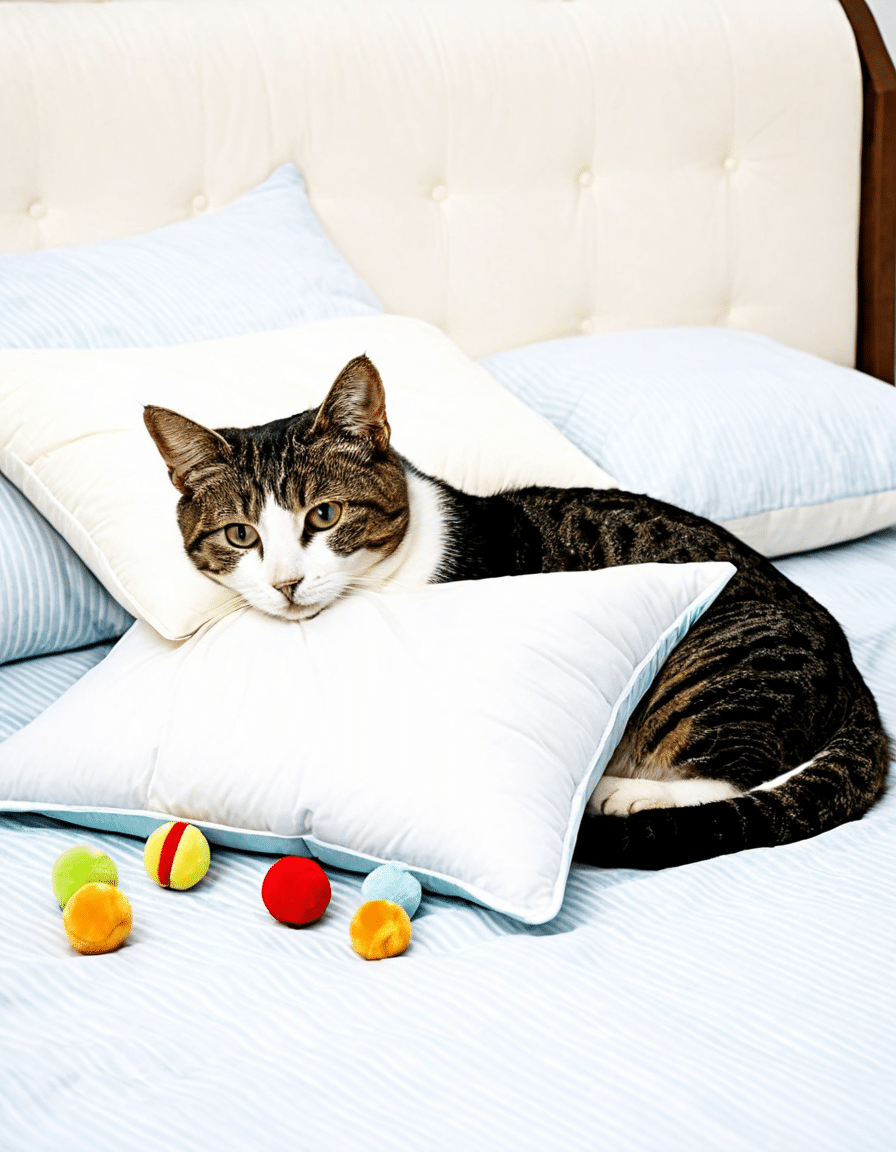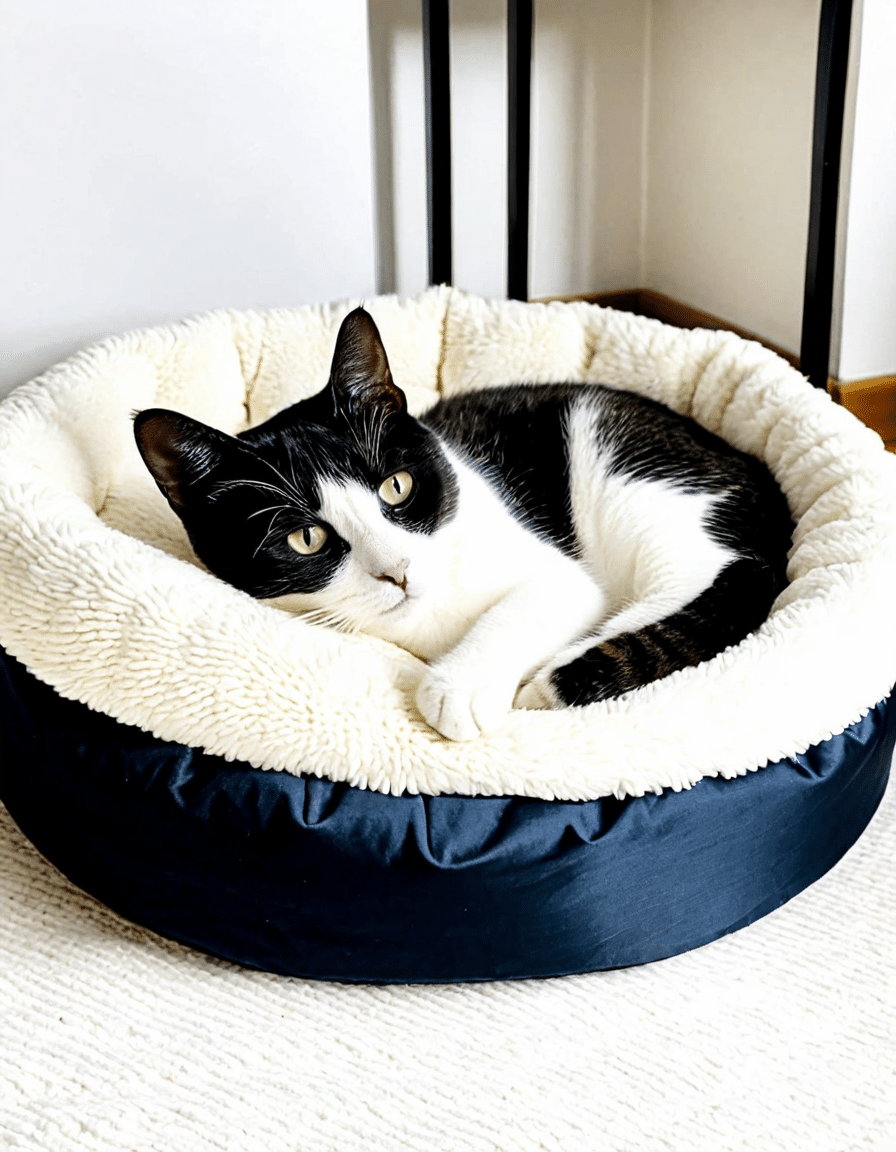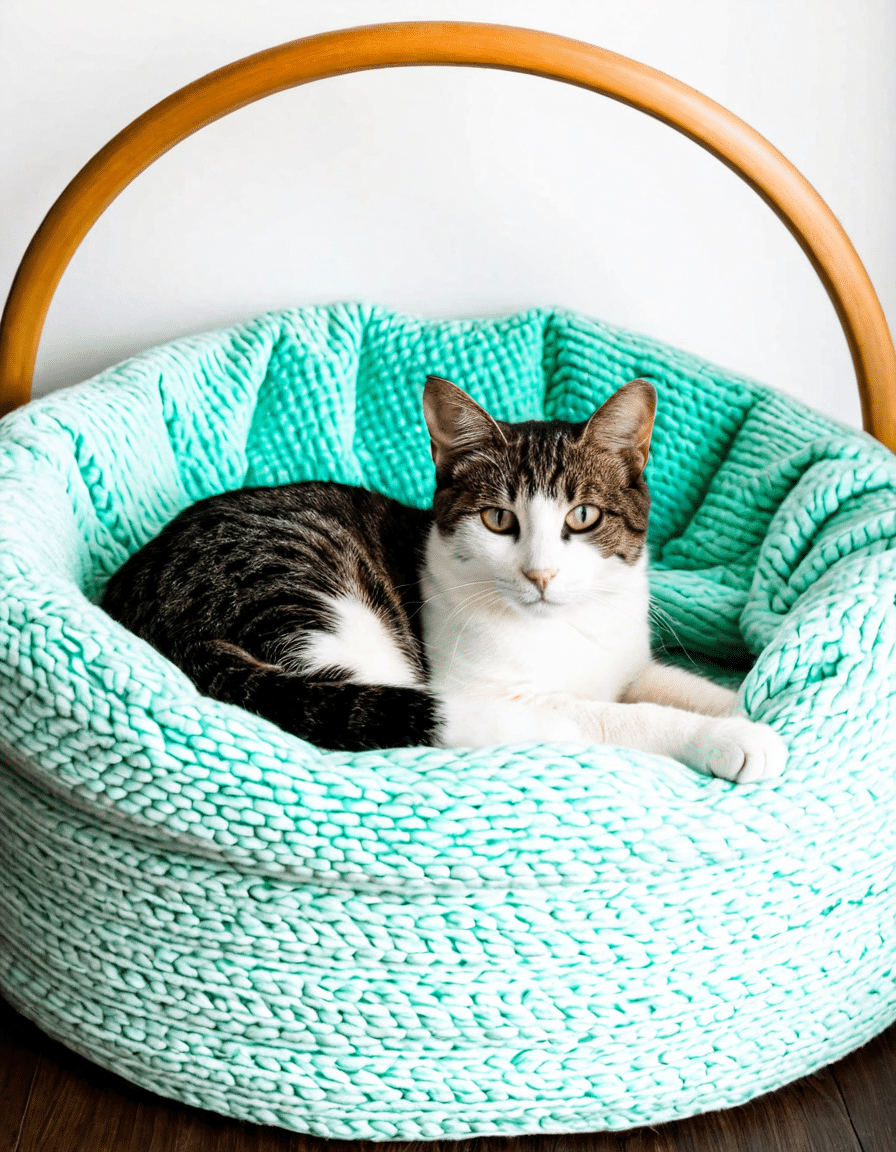As cat owners search for holistic remedies to boost their pets’ health, many wonder, can cats take melatonin? This increasingly popular supplement might provide benefits, addressing common issues like anxiety and sleep disorders. With proper understanding, cat owners can make informed choices about its use, balancing natural solutions with veterinary advice. This article delves into the potential advantages and considerations of melatonin for feline friends, ensuring every pet parent has the right information at hand.

7 Benefits of Melatonin for Cats
Melatonin is a natural hormone known to regulate sleep-wake cycles. In cats plagued by sleep issues, particularly those facing anxiety or age-related disorders, melatonin can be a game changer. Some brands, like Pet Naturals, create melatonin supplements tailored for pets, easing anxiety during travel or routine changes. Cats that experienced disrupted sleep might find solace with these formulations, leading to happier and healthier lifestyles.
Many cats can get stressed from environmental changes like moving homes or new pets entering the household. Melatonin might help alleviate those worries. Take Whiskers, a rescue cat who was anxious and uneasy in her new environment. After a veterinarian-recommended melatonin regimen, her anxiety levels significantly decreased, and her overall mood improved. This illustrates how melatonin can positively impact a cat’s mental state.
Just like people, cats can feel the blues during certain seasons, experiencing shifts in energy and mood. Melatonin can help manage symptoms connected to SAD by stabilizing mood and promoting better sleep. Experts, including Dr. Karen Becker, highlight the importance of watching cat behavior during seasonal changes to gauge whether melatonin may be helpful.
Senior cats often struggle with maintaining a consistent sleep schedule. Melatonin supports their biological clock, leading to healthier sleep patterns. Products like Vet’s Best Melatonin for Cats are developed specifically for senior felines to mitigate common sleep issues they face, ultimately contributing to their quality of life.
Cats can be jumpy, especially during loud noises like storms or fireworks. Melatonin can help soothe their nerves in these frantic situations. A family reported their cat, Milo, became noticeably calmer during stormy weather after starting a melatonin supplement. This showcases melatonin’s potential effectiveness in managing situational stress in we anxious kitties.
While research is still ongoing, some studies suggest melatonin may boost skin conditions and coat health thanks to its antioxidant properties. For instance, one study indicated that cats with certain skin ailments showed improvement when given a melatonin supplement. Always consult a vet before starting supplements, as individual reactions may vary.
Melatonin has been shown to promote hair regrowth, especially in conditions like alopecia. Pet owners have observed success stories of improved fur density in cats facing hair loss after melatonin use. However, as with other supplements, veterinary guidance remains crucial to ensure safety and efficacy.

Frequently Asked Questions: Melatonin for Cats
Absolutely, but it’s crucial to consult with your veterinarian first. They’ll help you determine the right dosage based on age, weight, and health status, ensuring your cat receives the best care possible.
Generally, melatonin is considered safe; however, some cats may experience side effects such as drowsiness, disorientation, or gastrointestinal upset. If you decide to give your cat melatonin, keep an eye on them for any adverse reactions after administration.
Other Common Pet Care Questions
Although Neosporin is known for its wound-healing properties, many veterinarians recommend against using it on cats. If ingested, cats can experience adverse reactions or toxicity, so seek veterinarian-recommended alternatives for managing wounds.
Unlike cats, some veterinarians approve of Neosporin’s use on dogs for minor cuts and scrapes. However, it’s always best to consult a veterinarian beforehand to ensure safe application.
Cannabidiol, or CBD, has garnered attention for its potential health benefits like reducing anxiety, alleviating pain, and even helping manage seizures in cats and dogs. Several studies suggest that CBD oil can enhance the quality of life for both species.
The Bigger Picture
Integrating melatonin into your cat’s routine can be a smart approach to support their mood and sleep, given it’s done thoughtfully and under veterinary supervision. Just as with any treatment, observing your pet’s reactions is crucial and adjusting your approach based on their needs.
In recent years, pet owners have increasingly turned to holistic and natural options for their furry companions. As the role of supplements like melatonin continues to develop, it underscores the importance of a partnership between pet owners and veterinary professionals to ensure our beloved pets thrive. By staying informed, you contribute to a healthier, happier life for your feline friend, paving the way for a more enjoyable experience for everyone involved.
For all your pet health inquiries—whether it’s about skin conditions, dietary concerns, or practical tips, let’s dive deeper together!
Remember, while melatonin may provide several benefits, doing thorough research and consulting with a veterinarian ensures that you make the best decisions for your furry family members.
Can Cats Take Melatonin?
When it comes to can cats take melatonin, many cat owners are keen on understanding this supplement, especially regarding their furry friend’s sleep patterns. While melatonin can help reduce anxiety and aid sleep in some pets, it’s important to consult with a veterinarian before giving it to your cat. Interestingly, melatonin is often used in dogs too! If you’ve ever wondered about your pup’s digestive health, you might find yourself looking at links about what to do if My dog Has soft stool but Is acting fine or how to care for them in different scenarios.
Fun Facts About Melatonin Use in Pets
Melatonin isn’t just a sleep aid for humans; it’s found in a variety of pet care practices. Some pet owners have reported their cats becoming calmer when melatonin is incorporated into their diets, leading to a good night’s sleep. If you’re a bit of a fashion enthusiast, you might even consider how a stylish black Jansport backpack could be a great carrier for trips to the vet! It’s all about making those necessary trips enjoyable for both you and your pet.
It’s fascinating to note that melatonin is even sometimes used to treat hair loss in cats! Just like how a canine hair dryer can be a lifesaver to keep your dog’s coat shiny, melatonin can result in healthier hair for your cat too. And while we’re on the subject of interesting pet care, did you know that the sleep cycle of a cat can vary dramatically depending on age and environment? So, while thinking about the potential benefits of melatonin, remember that factors like stress from changes in the home environment can affect their well-being.
Holistic Pet Care Beyond Melatonin
For those looking into holistic methods for pet care, melatonin is just a piece of the puzzle. From keeping your furry friend well-hydrated through options like subcutaneous fluids for dogs to ensuring they eat well, overall wellness is key. Plus, if your cat loves to bask in the sun, you might ponder on whether can you eat the sunflower seed shell — just a fun thought while enjoying a snack during cuddle time with your kitty!
In conclusion, while exploring can cats take melatonin, remember to communicate openly with your vet to weigh the pros and cons. After all, your pet isn’t just part of your life; they’re family! Whether you’re looking for Taylor Swift inspired Outfits for a fancy pet costume party or simply want a quiet night with your feline friend, understanding their needs is essential for a harmonious life together.



